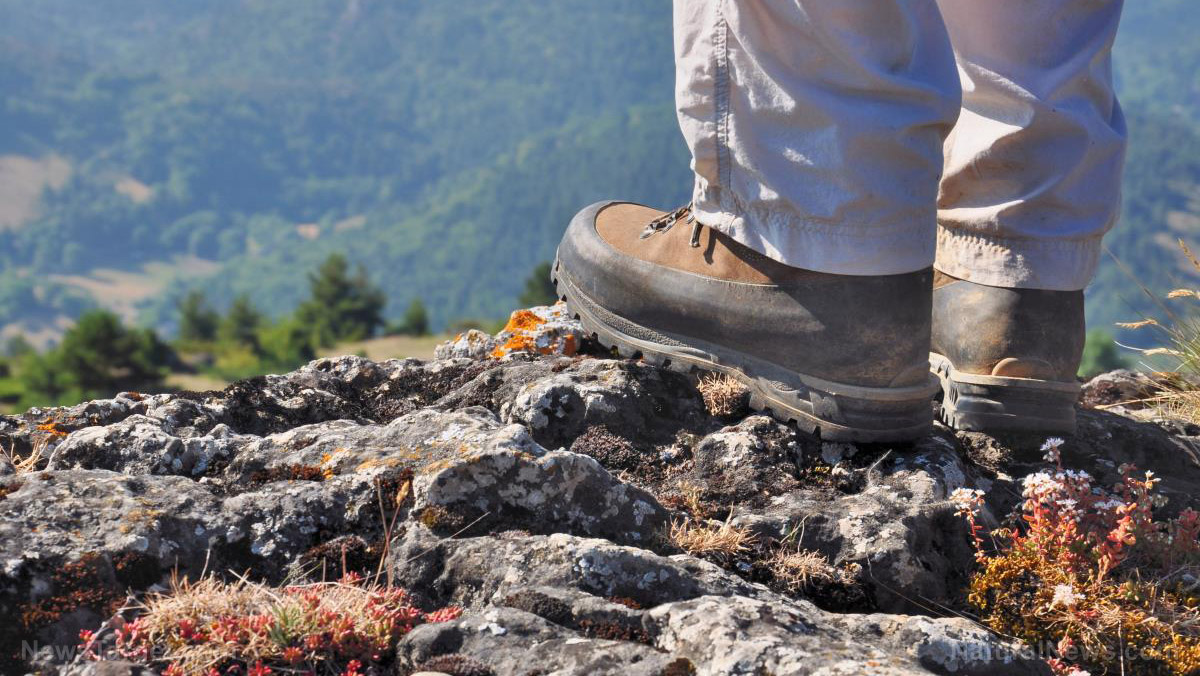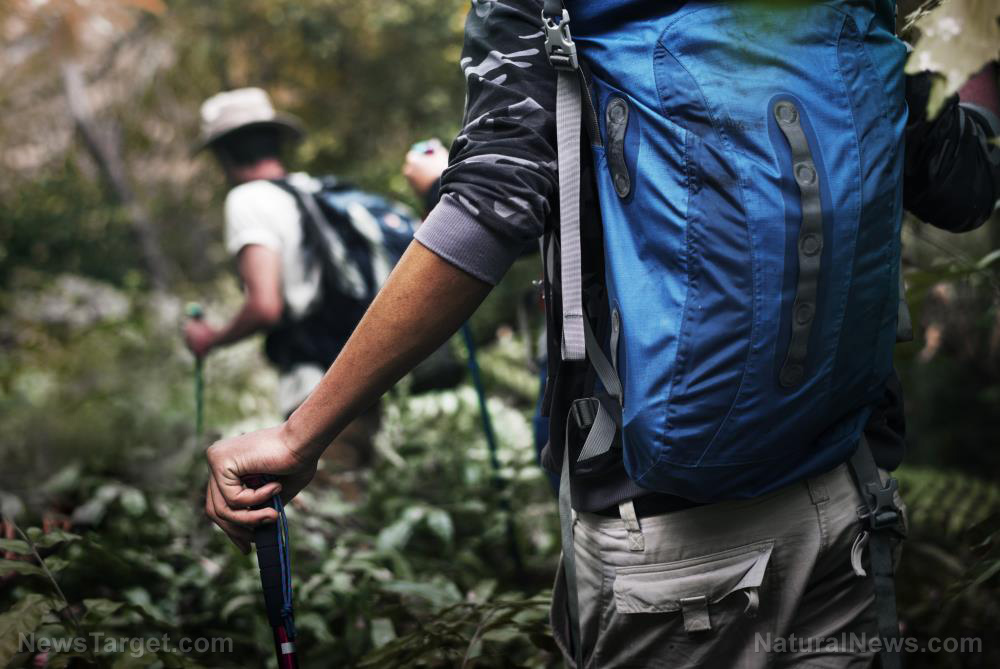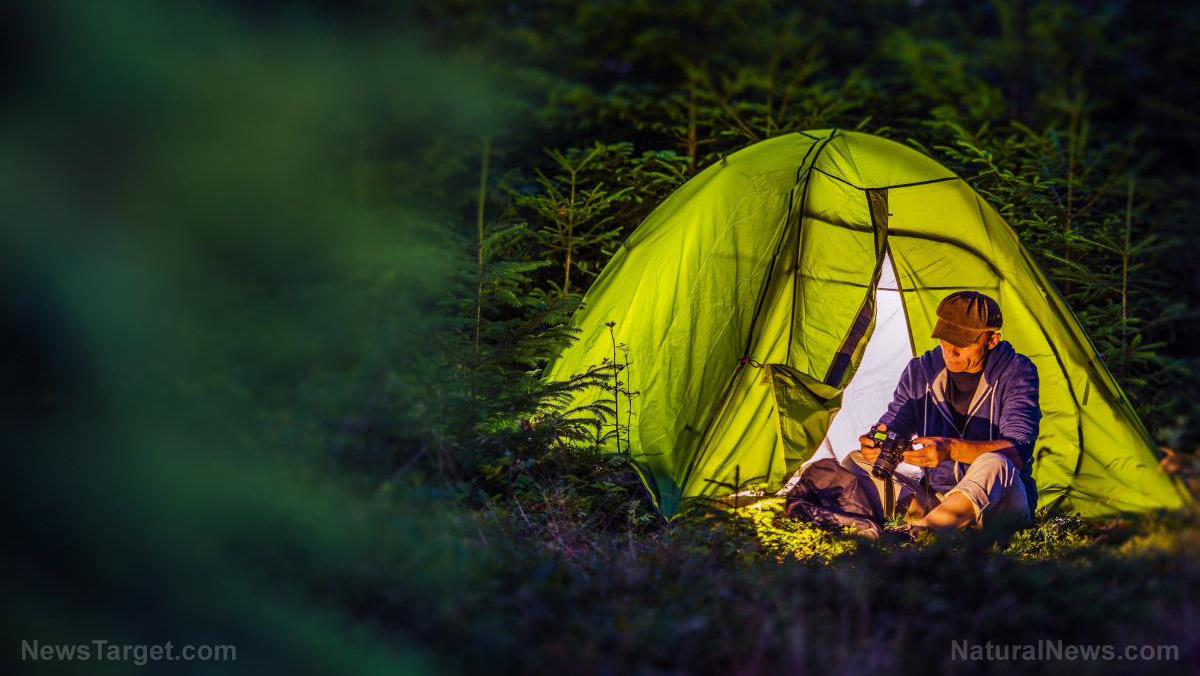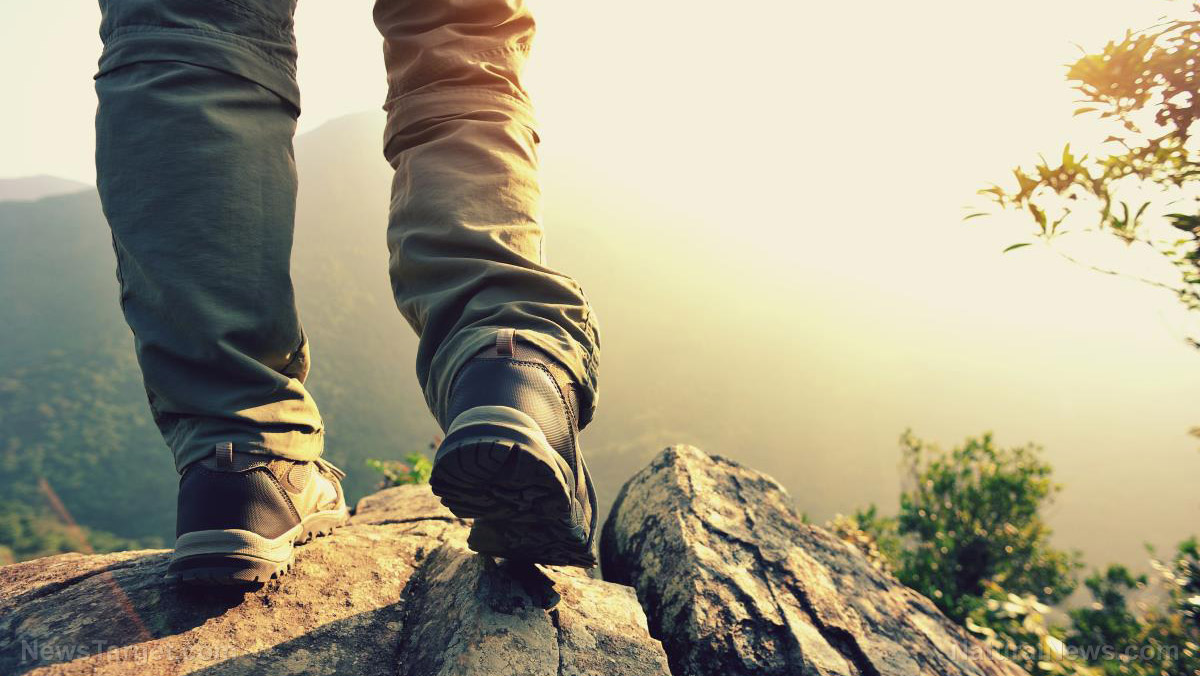What kind of shoes do preppers wear? Choosing your survival shoes
By Zoey Sky // Jun 29, 2018
TAGS: backpacking, bug out, camping, camping shoes, foot wear, Gear, outdoors, plan your trip, preparedness, prepper, prepping, shoes, SHTF, survival, survival shoes, survivalist

Preppers know that being ready in case the worse happens is important. It's no wonder that they're also particular about many things, such as their gear and the kind of shoes that they wear. Always think about "comfort, fit, and function." Wearing a pair of sneakers if you plan on going on a hike simply won't do.
If you're fairly new to prepping, you can use this guide to determine which pair of survival shoes suits your needs. (h/t to SurvivalCache.com)
Things to consider
- Shoes for soft prepper work – The level of activity and the prepper tasks that you must accomplish daily will influence the kind of shoes that you need. Are you simply going for a walk, run, hike, or climb? If you're doing a mix of these prepper tasks and you are on the move a lot, you need a pair of sturdy and well-made shoes with soles that have "soft soil or mud terrain gripping capabilities." This ensures that you don’t slip and slide. When you Bug In, you can go with comfortable light shoes or boots. Slip-ons or shoes with Velcro strap latches are great for older preppers. You can use house shoes, but make sure to get a pair that can still be worn outside. Avoid shoes with cheap fabric construction and light fake material soles. Stick to leather with non-slip rubberized soles. (Related: How to Choose Comfortable Shoes that Sustain your Feet and Prevent Pain.)
- Shoes for hard prepper work – For a Bug Out at a camping site on rough terrain, you will need some heavy duty boots for outside activities such as "perimeter patrolling, hunting, scouting, or defensive actions." Hunting boots will suit preppers who need to cut wood, work gardens, and other tough outside jobs. Get a pair of shoes that lace up, is waterproof, and is insulated so you can still wear them if the weather is wet and cold. Once again shoes with leather as the base boot material are the best choice. You can go with nylon or synthetic uppers if they're weatherproof and thick enough for ample side support.
- Other shoe options – If you're often in mucky areas, consider getting several pairs of different kinds of slip on high top Muck boots. These boots have rubber bottoms and neoprene shaft tops, and they are very comfortable. Muck boots are waterproof, and they're available with cold weather insulation. New or surplus military boots can also suit several prepper activities. Military boots "are mid-top, lace-up boots that are lightweight," and they are often very durable.
Like other survival gear, a pair of high-quality boots or shoes must be maintained properly.
- Always let your wet or sweat soaked boots dry properly. If you have electricity, use boot dryers. If there's no power, open up the boots and let them dry near moderate heat. Never leave them next to a fire.
- Get some boot cleaning kits with brushes and leather waxes.
- Have several sets of backup laces.
- Keep a tube of Shoe Goo for footwear repairs.
- Before making your purchase, check if the shoes fit properly. If you're not sure, buy a pair one size bigger.
- Wear socks that are suitable for all-day wear even in varying environments and work conditions.
- Avoid "one dollars shoes, flip flops, open-toed sandals, and slippers."
Keep the tips listed above in mind before you buy a pair of survival shoes. If you're not wearing the right footwear, you might end up getting blisters or ankle sprains which can hinder your mobility.
You can read more articles about survival shoes and clothing at Gear.news.
Sources include:
Related Topics
backpacking bug out camping camping shoes foot wear Gear outdoors plan your trip preparedness prepper prepping shoes SHTF survival survival shoes survivalistLatest News
04/28/2023 / By Ethan Huff
04/28/2023 / By Ethan Huff
04/28/2023 / By Belle Carter
Related News
06/22/2021 / By Zoey Sky
11/25/2019 / By Arsenio Toledo
04/01/2019 / By Rhonda Johansson
10/03/2018 / By Zoey Sky
08/21/2018 / By David Williams
08/03/2018 / By Zoey Sky
08/01/2018 / By Rhonda Johansson
Take Action:
Support NewsTarget by linking to this article from your website.
Permalink to this article:
Copy
Embed article link:
Copy
Reprinting this article:
Non-commercial use is permitted with credit to NewsTarget.com (including a clickable link).
Please contact us for more information.
Please contact us for more information.




















